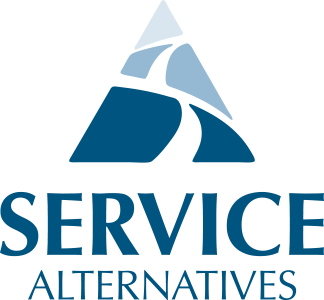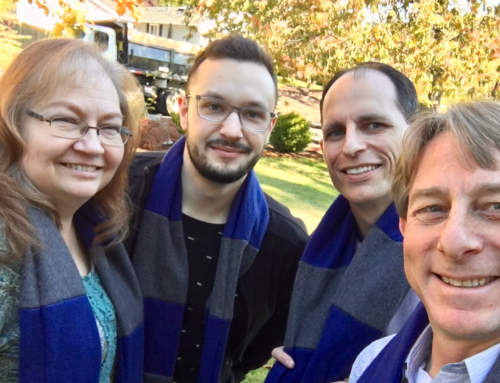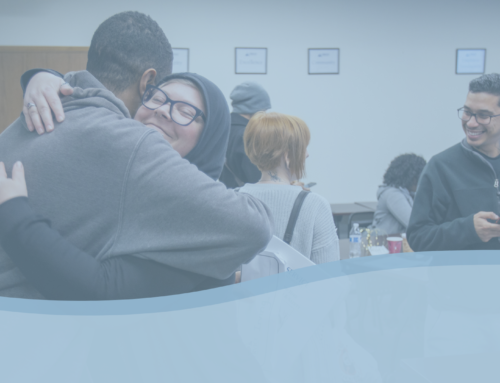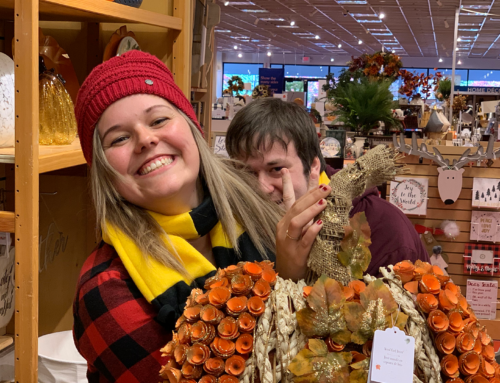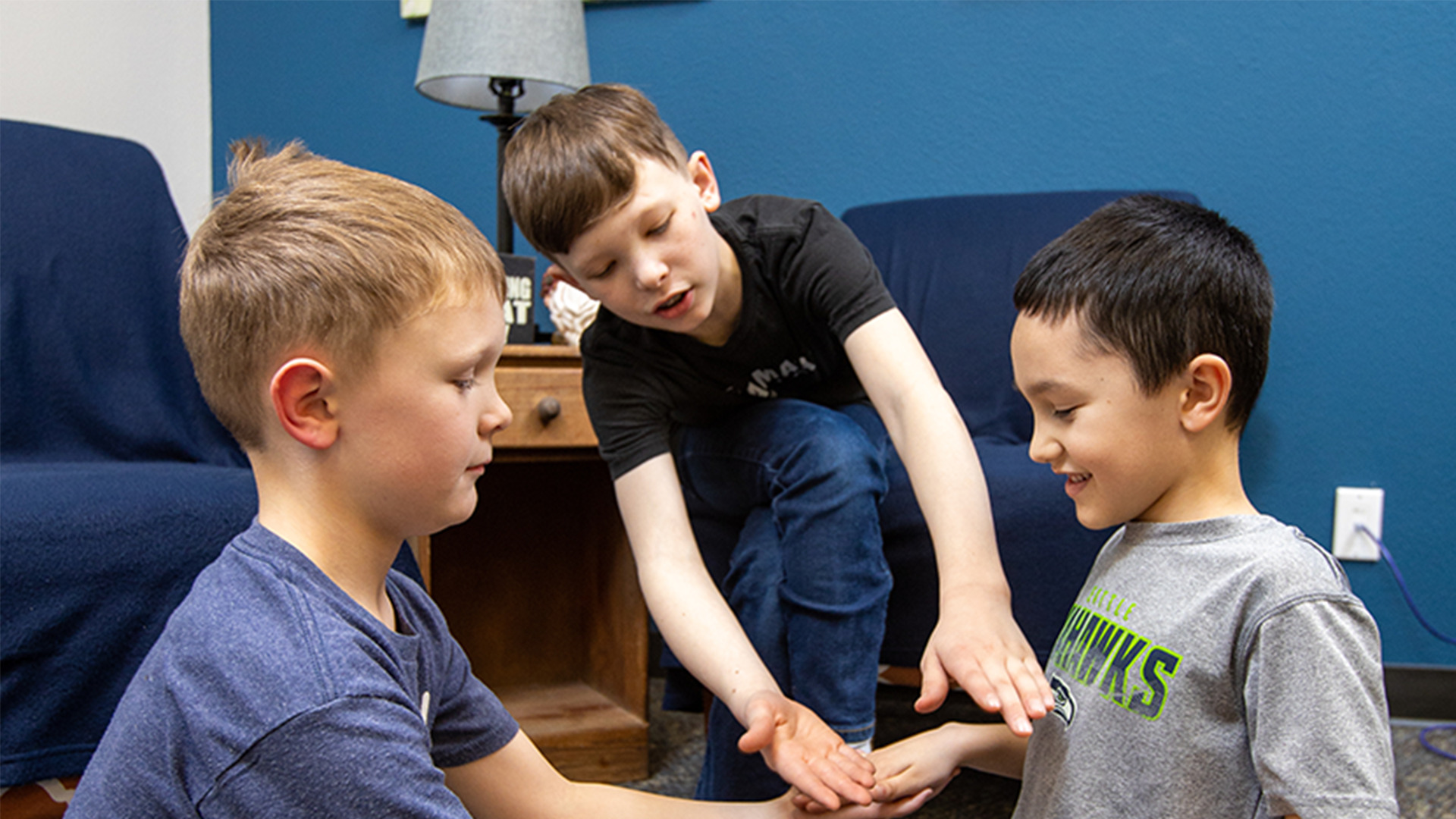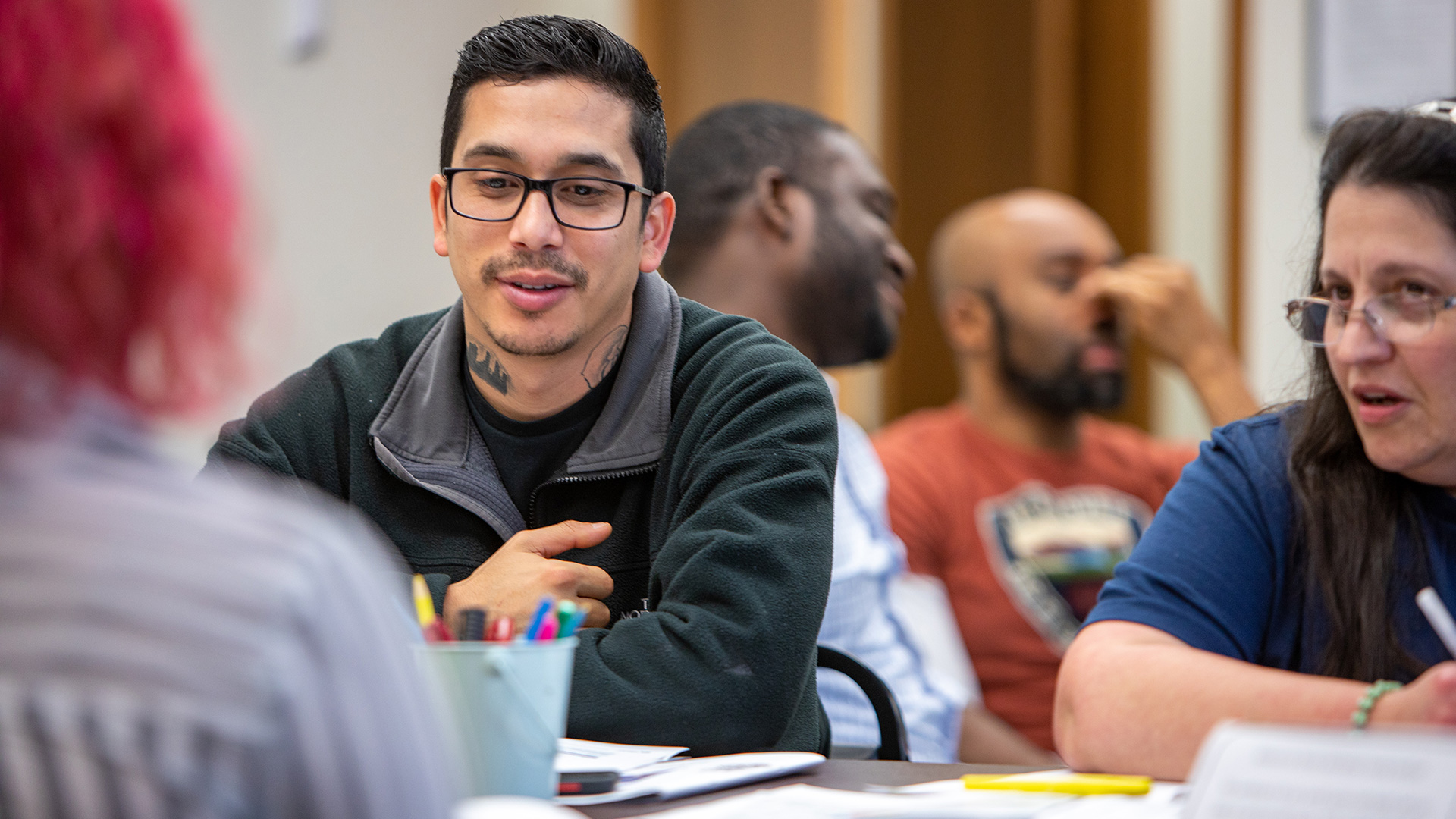Name: Sandra Cohen
Program: 90 – Corporate
Job Title: Master Coach of Executive Development
What does a Master Coach do?
I am our Executive Coach for Service Alternatives. I design and help carry out all kinds of leadership initiatives. I spend a lot of my time with the Executive Team and SA Leadership and beyond. I also do individual, personal development coaching for leaders, which is helping with personal development in coaching. What I do is work at untapping people’s potential. Helping to take you to the next level, while also offering my assistance as a coach. Most of the time this is called Transition Coaching. This is for people that might have had a big change in a job or are stepping into something else. It’s more short-term focused coaching.
I work with our CEO and our COO in our Collaboration Team Gatherings along with assisting at trainings when needed. My trainings are mostly facilitations that are focused on Emotional Intelligence which I offer at Service Alternatives as well as externally for many employees throughout our state. I’m also involved in our Bite-Sized Leadership trainings.
You provide trainings on behalf of Service Alternatives both internally and externally.
Can you explain how that connects your position as a Master Coach?
Externally, I’m involved in two things; one is with the Department of Enterprise Services (DES) which is the people who hold the contract for all government trainings.. To work with DES, you must have a significant amount of experience in your field of expertise. Oftentimes, we are training people that have gone through lots of instructor trainings or have been leaders for a long time and it’s the next step in training.
I also partner with Developmental Disabilities Administration (DDA) and do a Leadership Academy for their leaders, myself and two other subject matter experts.
I’m on several contractor lists with places like Microsoft, Amazon, and Starbucks who offer their employees a year of personal development or coaching once at the executive level.
What does a typical day look like for you?
A typical day looks like a lot of conversation, so it’s either coaching sessions, meetings with the Executive Team, or lots and lots of phone calls and Zoom meetings. I assist with development meetings, lots of different leadership meetings, and then individual coaching as well as research and learning and bringing those resources to our organization. I’m also available a couple hours a week for consultation for people to discuss what they’re trying to accomplish with their teams.
I do a fair number of Coaching Consultations as well as Leadership Consultation, not just coaching.
As a master coach, how do you work with leaders to model and embed self-care practices in their work?
First, I really try to meet them where they’re at and do an assessment of what they do and what they don’t do, what’s working and what’s not working, and what would be the most realistic thing for them to implement.
I work with people teaching them to simply pause every hour or so and for 10 seconds, do something to re-ground you with your own body. This could be a simple thing like rubbing your fingers together and focusing on every ridge that’s on each side of your finger. This helps to get people out of their heads and reground. I encourage individuals to set an alarm if they need to. Whenever the alarm goes off, do something mindful. Take 5 deep, cleansing breaths; pause and reflect for 5 minutes or less. With customers that we serve, it is a way of protecting one’s own well-being and happiness, particularly in times of stress. If we don’t understand our own self-care then we are at the mercy of our habits, which might not always serve us well.
The evidence shows that you have higher and higher levels of effectiveness if you practice self-care. Part of self-care can look like learning how to say no or asking clarifying questions. It’s not just taking good care of the people we assist – it has to start with ourselves. Then the people, our communities and everyone else around us will see and be more effective.
How do you make sure that you are showing a deep profound respect to the people that you work with?
First by doing my own personal work and making sure that when I am in the presence of people that I am working at my best ability. I meet people where they’re at and have endless confidence in their abilities to find resources, even when people are tapped out or they feel like there’s nowhere to go. I encourage them to continue to try to discover themselves and to be a model of somebody who is not only willing to make mistakes, but honors making mistakes. This way people can be more freed up to take risks and be innovative. For me personally, my respect definition is about being transparent and current in my communication with people. Whether it’s something difficult to talk about or whether it’s something celebratory I make sure that I always respect others.
Do you have any specific tips on how managers can do self-care for themselves and their employees?
The first and most important tip for managers is they absolutely need to block time. Even if it’s a 15-minute block. In an ideal world, I would love to see that 15 minute a day they block as if it were an important meeting or anything else that they wouldn’t be willing to miss. Build into those 15 minutes whatever you need to do for self-care. Pausing, exercises, breathwork, or simply looking after their self-care routine.
Remember to assess yourself and review what worked this week, and what didn’t. What are you looking forward to? The thing that seems to get away from our managers more than ever is time. You can waste so much time overthinking, or not being in the right head space. But, if you took the time to pause, and honored the time block, you find right away that you can focus on the project at hand. Take a moment to breath, prep, and take on the challenge of the item in front of you.
The second most important thing is to honor that block for at least a month because that’s when the new habit and a new neural pathway begins. After roughly 30 days, it starts to become more of a physiological habit. We’re trying to get those embedded against everything else.

